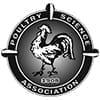Rice paddies may be the ideal environments for raising organic duck meat—and improving carcass qualities - Interpretive Summary
Published: August 30, 2021
By: https://poultryscience.org/
by Sam Shafer
Are rice paddies and duck operations a match made in heaven? In a recent Poultry Science® study, researchers with Yangzhou University investigated the effects of integrating ducks into a rice farming system on duck carcass traits, meat quality, amino acid, and fatty acid composition.
The team found that a rice-duck (RD) farming system improved the carcass traits, intramuscular fat, essential amino acids, and polyunsaturated fatty acids profiles of the ducks.
“These findings suggest that the RD system is an effective strategy to improve the welfare and meat quality of ducks,” write Hua et al.
Paddies are flooded fields of arable land, used around the world for growing crops such as rice and taro. Waterfowl that make rice paddies home provide the benefits of eating pests weeds while adding nutrients to the water through their waste.
Because rice paddies are already suitable habitats for waterfowl, RD operations represent a promising avenue for raising ducks in an environment that is seen as conducive to natural duck behaviors. According to the study authors, organic poultry raised in RD operations is increasing in high demand in many Asian countries, including China, Japan, South Korea, and Vietnam.
Previous research had linked RD systems with better rice yields and improved duck growth rates. Yet few researchers had looked at the effect of RD operations on duck carcass quality.
For the new study, the researchers compared RD operations to floor pen rearing operations (FPR). The researchers began with 180 fertile Jinding duck eggs and divided them into three replicates per treatment. The ducklings were hatched in the same environment and then the RD group were released into the paddies at a density of 18 ducklings per 666.67 m2. All ducklings were reared with the same diet.
Once the ducks reached 84 days old, the researchers analyzed the carcass characteristics of six males and six females per treatment. The researchers found that the ducks from the RD treatments had significantly higher live weight, carcass weight, carcass yield, eviscerated yield, and thigh muscle rate compared with those reared in the FPR system.
Although the moisture and protein content of the breast and thigh muscles of ducks reared in the RD system was significantly lower than ducks in the FPR system, the new study shows that the ducks reared in the RD system had significantly higher intramuscular fat content.
Rearing system also made a difference in fatty acid composition. The researchers found that the breast muscle of ducks reared in the RD system had significantly higher saturated fatty acid, monounsaturated fatty acid, and polyunsaturated fatty acid content than ducks reared in the FPR system.
“These results indicated that the RD system could improve meat quality, including nutritional value and flavor,” write Hua et al.
The researchers say the variety of plants and insect life in paddy fields is likely part of the reason for the duck carcass improvements.
What does this study mean for producers?
- There is increasing demand for duck meat that can be marketed as organic and linked to higher animal welfare.
- Rice-duck operations may meet this demand. The ducks are seen as being able to practice more natural behaviors and they have more space to move around than in floor pen rearing systems.
- The new study shows that rice-duck systems lead to better duck carcass qualities, including higher carcass weight and carcass yield.
The full paper, titled “Effects of integrated rice-duck farming system on duck carcass traits, meat quality, amino acid, and fatty acid composition,” can be found in Poultry Science® and online here.
DOI: 10.1016/j.psj.2021.101107
Source
https://poultryscience.org/Related topics:
Mentioned in this news release:

Recommend
Comment
Share

Would you like to discuss another topic? Create a new post to engage with experts in the community.



